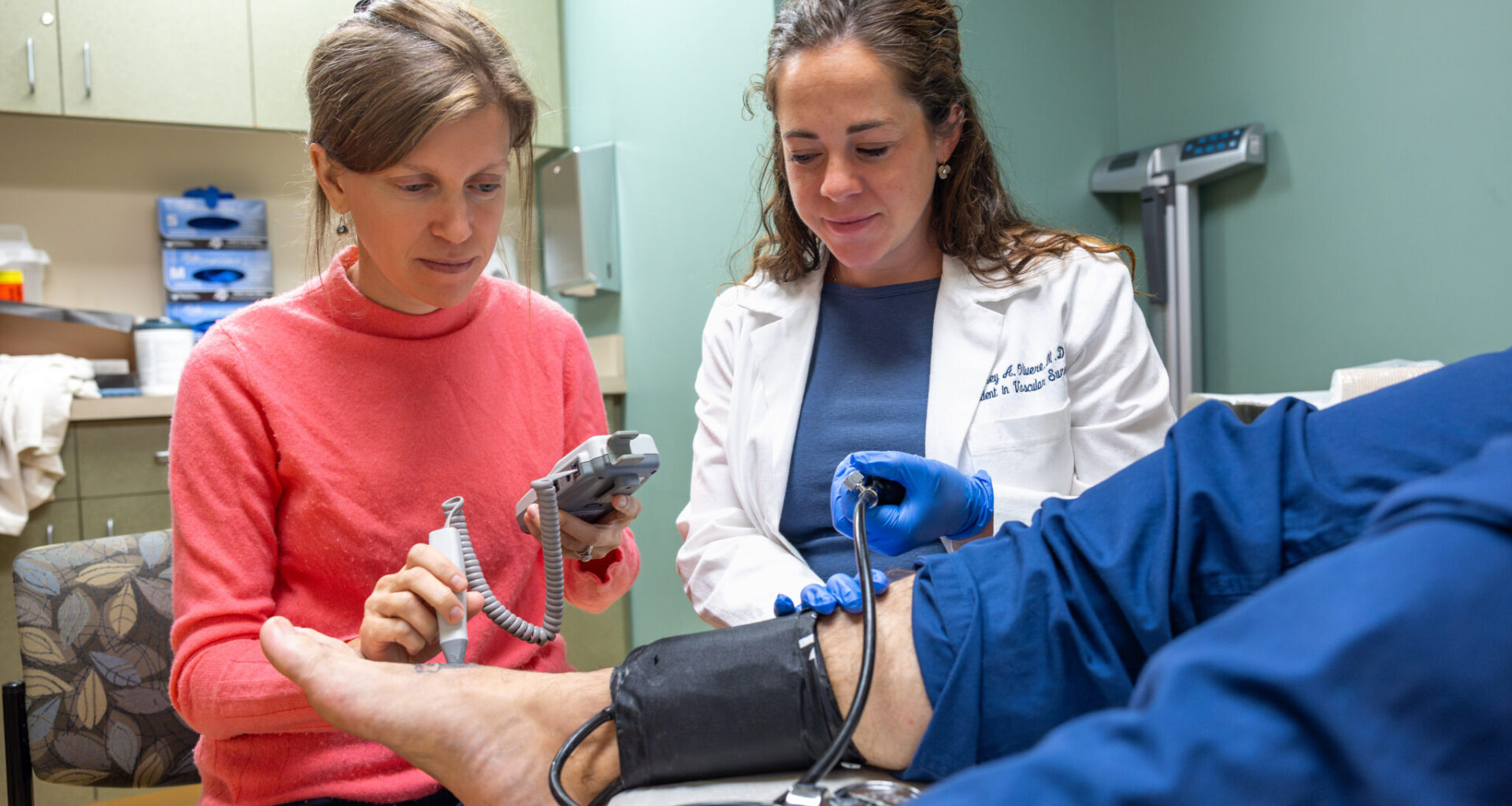When Dr. Lindsey Olivere sees patients with peripheral artery disease (PAD)—a narrowing of blood vessels in the extremities that is a leading cause of amputations—they often share that they had a family member who lost a leg to the disease. “And for many of these patients, it’s almost as if they have just accepted that amputation will be their natural course, too,” she said. “But we’re trying to change that.”
Olivere is passionate about spreading the message that limb loss from PAD is preventable, but screening and timely intervention are key. Unfortunately, both are often inaccessible for underserved patients—and she’s working to change that, too.
Olivere, an integrated vascular surgery resident at UPMC and research scholar at the University of Pittsburgh School of Medicine, coordinates an ongoing series of free, monthly vascular health screenings for underserved communities across Pittsburgh. The effort started in early 2024, when Nicole Alindogan and Bre Franklin, Pitt medical students on the Street Medicine team, realized that their foot-care program at UPMC Second Avenue Commons Health Center provided a perfect opportunity to address this unmet need among Pittsburghers experiencing homelessness. Since launching at Second Avenue last May, the program has also expanded to the Birmingham Free Clinic, which serves patients who are uninsured or underinsured.
Up to 65% of those who are unhoused have foot problems, from fractures to ingrown toenails and other wounds, and the risk of poor healing is especially high for people with PAD or diabetes. “These wounds can lead to progressive infection, hospitalization and, ultimately, amputation,” said Olivere.
At the screening events, the volunteers collect medical histories, perform foot exams, provide wound care and conduct a non-invasive test known as an ankle-brachial index (ABI), which uses high-frequency sound waves to detect abnormalities in blood flow via a handheld ultrasound device called a Doppler (pictured, above). A grant from the Eastern Vascular Society provided Dopplers and blood pressure cuffs for the team, which includes UPMC vascular surgery residents as well as Pitt medical and pre-med students.
Once patients are identified as having PAD, the team refer them for follow up care as needed, assist in connecting them with affordable medications, and provide education on managing factors that contribute to PAD, like smoking, diabetes, hypertension and high cholesterol, said Olivere, who presented on the topic of appropriate screening and wound care for limb-loss prevention in September at the International Street Medicine Symposium in Hilo, Hawaii.
“There are medications and other interventions we can offer to improve symptoms, stop progression and reverse PAD. But we want to identify it as early as possible,” said Dr. Natalie Sridharan, associate director of the vascular surgery residency and fellowship program and chief of vascular surgery at UPMC Mercy, who oversees the program with Dr. Katherine Moll Reitz, vascular surgeon at UPMC Presbyterian and VA Pittsburgh Health System. Sridharan and Reitz are also associate and assistant professors, respectively, in the Department of Surgery at Pitt.
Sridharan, Olivere and Reitz are also training UPMC Matilda H. Theiss Health Center staff and other primary care providers to conduct ABI tests, flag risk factors and early warning signs of PAD, and provide vascular health education, in-house.
“People often seem surprised that a group of surgeons are so interested in prevention and primary care, but we really are,” said Sridharan, adding that these invitations to partner up have been extremely well received.
“The interest has really exploded.”

